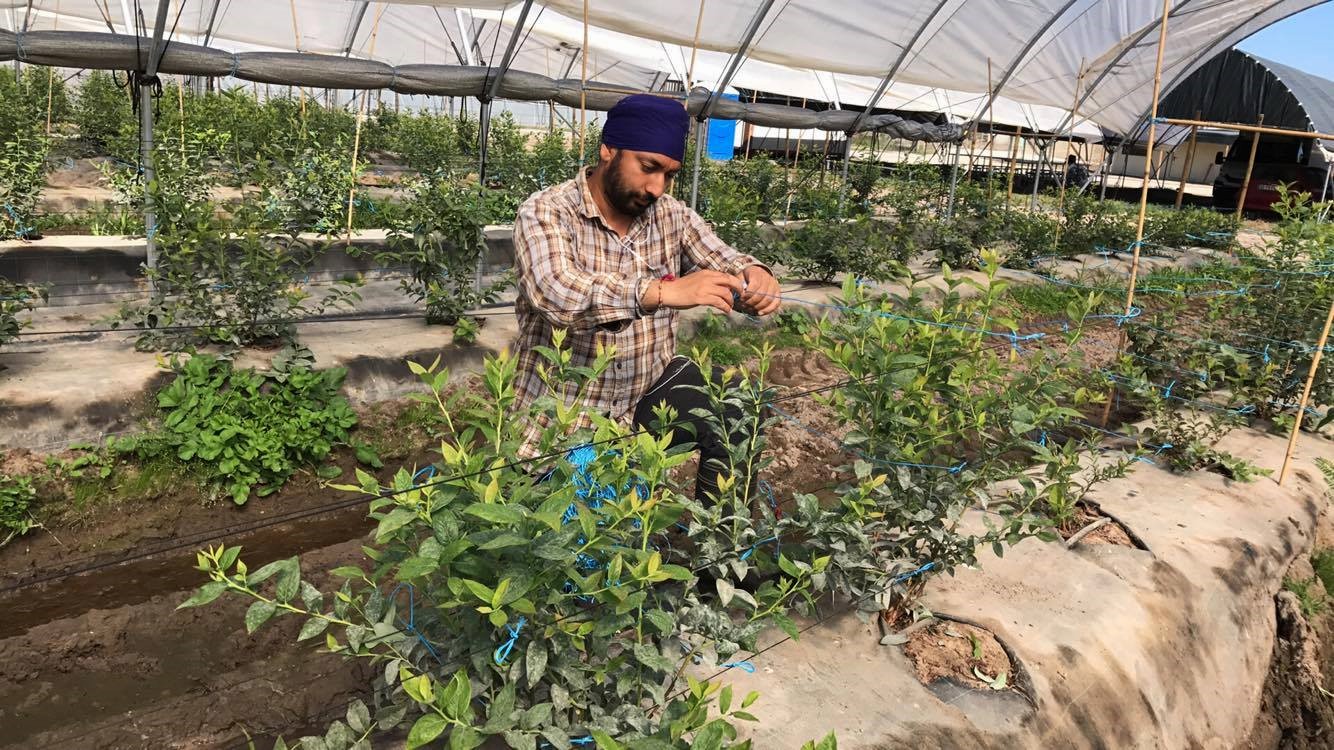 In São Teotónio, the world fits. Immigration in that locality in the municipality of Odemira has been growing. There are immigrants from Nepal, Bangladesh, India or Bulgaria working on the picking of soft fruits. In total, there are about 4 that are legalized – to which there are even more to be legalized. Thousands of kilometers from their homes, there are those who help them, but not everyone welcomes this immigration. Changing the aroma of bread, oil and garlic to curry is not always easy.
In São Teotónio, the world fits. Immigration in that locality in the municipality of Odemira has been growing. There are immigrants from Nepal, Bangladesh, India or Bulgaria working on the picking of soft fruits. In total, there are about 4 that are legalized – to which there are even more to be legalized. Thousands of kilometers from their homes, there are those who help them, but not everyone welcomes this immigration. Changing the aroma of bread, oil and garlic to curry is not always easy.
In that village, cultures come together. A walk through the streets of S. Teotónio is enough to prove it. In the “Quintalão” area, right in the center, there is a Nepalese supermarket, but also Portuguese cafes and shops.
The faces are very different. There are elderly people in berets who speak with that typical regional accent, or men with turbans and beards to their chests, enjoying the shade of the garden in front of the Church.
Coexistence is peaceful. But will there be a rapprochement between these two peoples?
Choreographer Madalena Victorino tried to bring the two worlds together, with the show “Al Teo Bú”, in Almograve and São Teotónio. Everything happened in November of last year. Madalena Vitorino took an idea and created a people with people from different cultures and nationalities. In a fictional way, these people “descended from the mountains of the World and arrived at São Teotónio”, he says.
Then, "they met by chance and talked about the need to seek a better life." “People were getting together until they formed a people, mestizo, full of ethnicities. One day, at the end of the afternoon, these people enter São Teotónio and ask themselves: can I fit in this village?».
As with those immigrants. Through art, if I wanted to convey a message. There was music and dancing, from India, Nepal, Bangladesh or Pakistan.
And Portuguese? “There were 90 people participating, mostly immigrants. The Portuguese could not seduce them. All the people closed their doors to me». Or rather: almost all.
From the village of Cavaleiro, two ladies came. Another one from São Teotónio, as well as six elderly people from that locality's home. “There is no integration of these immigrants in the community. It's a sad contest. The streets smell of curry and people get angry,” says Madalena.
But those who didn't want to participate didn't miss it. «We had 600, 700 Portuguese spectators. People were curious and, above all, amazed. This brought a different image of Asians. Normally, the local population just sees them coming out of the greenhouses, dirty, tired, but there they were beautiful and happy. They even sang», he concludes.
In São Teotónio, everyone knows who Tânia is
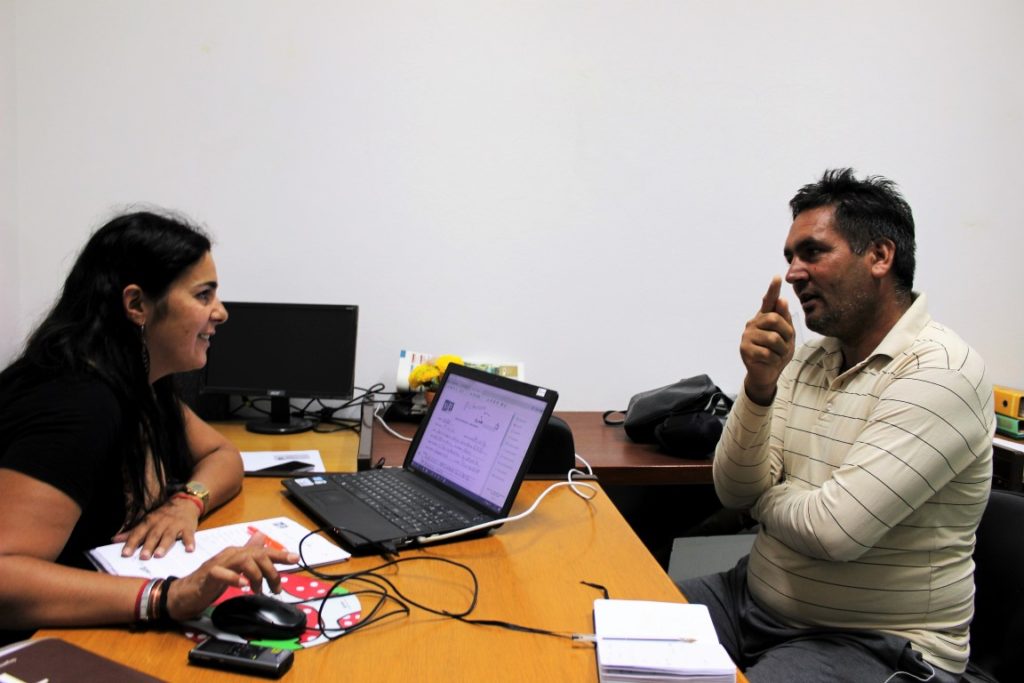
Tânia Guerreiro, director of the Local Immigrant Support Center (CLAIM), arrives at the Parish Council of São Teotónio, quickly goes to her office, but when she arrives there is still no one waiting.
“Usually, you can't even imagine how this is. There are people and people standing here around me», begins by telling. CLAIM, which is a project of TAIPA – Cooperative Organization for Integrated Development, is an initiative that brings together the best of two worlds: the public and the private.
50% of the financing is provided by the Municipality of Odemira. The remainder is divided by the companies that welcome immigrants who go to work in the Alentejo: 25% of Lusomorango, a group that has several companies, and the other 25% divided by sudoberry, vitacress, haygrove e Multitime, a temporary employment company. Always with the objective of providing a social response, helping to integrate people who come from completely different realities.
“We provide support in bureaucratic procedures, legalization, in issues related to the Foreigners and Borders Service (SEF) or the Authority for Working Conditions (ACT)”, says the director of CLAIM.
Let's go to the numbers. Currently, 15% of the population of the municipality of Odemira is already composed of immigrants, according to SEF data, from December 2016, which gives about 4 thousand people legalized, but there are certainly even more in the process of legalization, others illegal. As for nationalities, there are Indians, Nepalese, Ukrainians or Thais. 42% are between 26 and 35 years old. 86% are men.
CLAIM is currently helping 1149 people.
Bakvinder Singh is the first to arrive at Tanya's office. She enters timidly and sits across from the CLAIM director. He speaks almost imperceptible English, but there he manages, with difficulty, to explain that he wants to solve a friend's problem.
«You know, in Portugal, what bothers me the most is that we need a role for everything», this Indian tells the story of Sul Informação.
It was February 2016 when Bakvinder arrived in Portugal. In India, he left his wife and two children. After a year and a half, it is in the harvest of red fruits that he works and he says so with all pride.
The Southwest Alentejo – in particular the parishes of São Teotónio, Vila Nova de Milfontes and Almograve – is a real oasis in the area of red fruits.
It's because? Firstly, it is in the municipality of Odemira that around 90% of the national production of raspberry is concentrated. Water conditions, partly due to the Mira Irrigation Perimeter, and climate are preponderant in this equation, which yields millions of euros annually in exports. The fact is that 90% of the production is also destined for export.
Right: there is work. So what about the local population? “There is a lack of manpower. That's why these immigrants come here», explains Tânia Guerreiro, exemplifying: «companies have to hire whoever is available and, even so, there was fruit to rot this year due to the lack of people to pick it up».
For the director of CLAIM, her work is a mixture of feelings. On the one hand, it is gratifying to help integrate so many people into a territory, but there is the reverse side of the coin. “It's not easy to manage everything. I live here in S. Teotónio. I go to the supermarket and meet the people whose files I'm dealing with. Everyone knows who Tânia is», she confesses.
Even outside the workplace, Tânia never abandons the role of “heroine”. “At late in the morning, they call me from India to ask if I'm Tania. I end up losing a little of my own life», he says.
In Odemira, «only those who don't want to work»
José Alberto Guerreiro is president of the Chamber of Odemira. For the mayor, in the council that he directs, “only those who don't want to work”. As for the phenomenon of immigration in that territory, it is not new. For example, "since the 80s, 12% of its population in the municipality of Odemira have been resident foreigners," he explained.
It's because? “Immigrants like the territory and the people. The Alentejo has this particularity», according to the mayor.
These new immigrants are mostly Asian. Many of them belong to the S religion.ikh, as is the case with Bakvinder. In fact, his nickname “Singh” comes from there. All male practitioners of this religion adopt the name "Singh", which means lion. The women are left with “Kaur” (princess).
Another of the rules of that religion is not to cut hair or beard, but this one is not linear. Bakvinder is an example. He has short hair and a cropped beard, although he still has to do it. «Some choose to abandon this practice, to have a more European appearance», explains Tânia Guerreiro. And not to confuse them with Muslims.
While he is being attended to, Bakvinder fiddles with his smartphone and it's not to talk to the “Portuguese friends” you have. "The best people in Europe!", according to the Indian.
More than a mere mobile phone, that object is a link with India. «I speak every day with my family for the Whatsapp. I really want to bring them here in the future», he confesses, moved, to the Sul Informação.
"We don't want these people to leave"
Councilwoman Deolinda Seno Luís is the main face of the work that the Municipality has been trying to do to integrate these populations into the local community. “Odemira has always been an immigration destination because we are in a territory that is extensive and very rich”, he considers, in statements to our newspaper.
In these greenhouses where immigrants work, agriculture is intensive. The arrival of all of them can only be seen in one way: “it is an opportunity to fight desertification. This brings economic dynamics to the territory», says the councilor.
But not everything is a "bed of roses". The coexistence between the two cultures even “is healthy, but there is no approximation”.
“There is some resistance from the older population. The new generations are already growing up in a school context with these people. This brought some asymmetries in terms of territorial cohesion and there are always possibilities of situations of social exclusion».
For example, according to Tânia Guerreiro, there are in the council «classes with 12 nationalities, which shows how we are in a multicultural world».
Basically, for older populations there is a big barrier: language. «Obviously, not speaking the same language, the process of approximation becomes more difficult». This is also why there are Portuguese classes for these immigrants at the S. Teotónio Schools Group.
CLAIM is the mediator between that group and the Employment and Vocational Training Institute (IEFP), “but there are many people signed up”, warns Tânia.
But this resistance is not exclusive to the Portuguese. “By virtue of their numbers, these immigrant communities tend to close in on themselves and to be self-sufficient among them. That's what we want to break», defends Deolinda Luís.
In Odemira, there is a guiding document for these issues: the Municipal Plan for the Integration of Immigrants. From the analysis, carried out with 34 partners, such as IEFP, Social Security, SEF, ACT, and the employing companies themselves, the plan emerged.
Measures were defined: the creation of CLAIM, for example, is one of them. The Days of Interculturality too: and from there comes “Al Teo Bu”. There is also a “recruitment pool”, in which companies can hire unemployed immigrants from the municipality.
But there is still “much to be done”. Now, in the 1st half of 2018, a new plan will be created, for which there is already "another know-how».
As for the desire, this is the same: "that there be a fixed number of people in the territory". “If we are making this effort, we don't want people to leave,” says Deolinda Seno Luís.
Working on the harvest of red fruits is «much better»
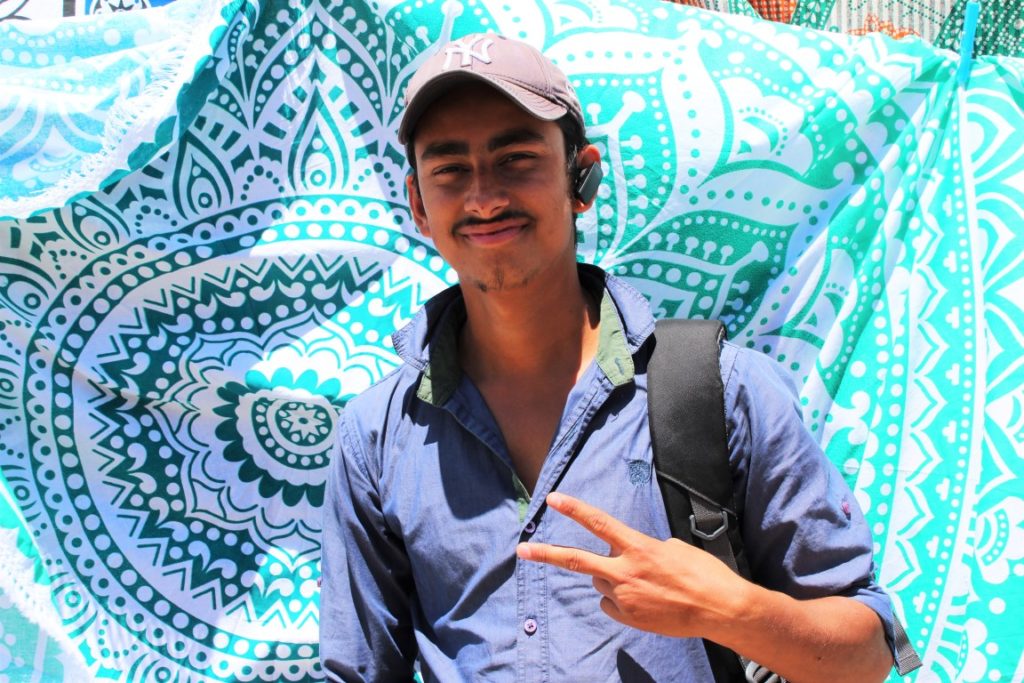
Mashesh Acharya, who is in the process of legalization, arrives at CLAIM's morning service with a backpack on his back, as if he were going to school, which would not be strange at all.
Is that the young Nepalese is only 23 years old, university studies age. In the ear, it has an earpiece bluetooth. Coming to Portugal, in September 2016, had a goal: «to become independent».
In Kathmandu, where he lived, Mashesh supported the family. “I started in the morning, very early, and worked until night. It's much better here!», he exclaims.
In fact, all these immigrants go to that municipality in Alentejo looking for a better life. When picking red fruits, they certainly earn the minimum wage. To this salary, extras can be added, earned at the height of the harvest's peak. They usually work six days a week.
The housing conditions of the containers where many live, in the production fields, are also "certainly much better" than those they had in their countries of origin, according to Tânia.
When they emigrate, these people come to «earn a luck», says councilwoman Deolinda. This is taking into account what wages are in their home countries. «That impresses». There is also the issue of “living in houses where they only have one bedroom and accepting this as natural”, he considers.
Perhaps because he is younger than Bakvinder, Mashesh is fluent in English and even ventures a few words of Portuguese. Only the best he can say is a scratchy “more or less”. When the word is “raspberry”, the fruit he spends all day picking, the case changes and Mashesh says it without any problem.
The young Nepalese confesses not having "much time to walk." «You know: I work during the day, then I'm at home, but sometimes I also go to Zambujeira do Mar beach with my brothers».
Blood brothers, Mashesh? "Not. My colleagues, with whom I work», he explains. But it's never the same. "I miss my family so, so much."
In the midst of the difference, there are already those who plant seeds from Thailand
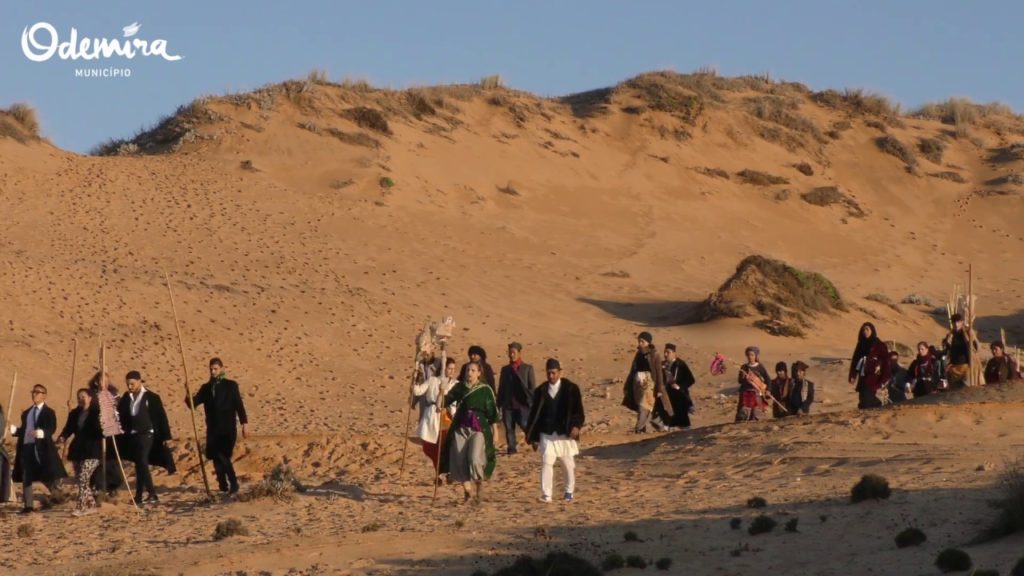
Odemira is a true melting pot of cultures, where there are «incredible things». “Imagine old men planting seeds from Thailand, as I've seen,” says the CLAIM director, laughing.
Is this a first indication that, in the future, there will be a closer relationship between the two cultures?
Could be. For Marta Cabral, president of the Rota Vicentina Association and who attended “Al Teo Bu”, for now the immigrants “are not integrated” in the community.
“Many come for a short time. Men come, women and children don't… There are a series of conditions that do not facilitate the work of integration. If families came, with no date to leave, it would be easier», he considers.
The challenge for the new Municipal Plan is this same. “2018 is a year to relaunch everything. Integration is a desired process throughout the territory», says councilwoman Deolinda.
"This is a case study," says Tania, excited. The High Commission for Migration is already keeping an eye on that small village. “We had a request to integrate Syrian refugees. I don't know if it will be easy…», says the CLAIM director.
In the future, Madalena Victorino, who sketched an approximation of peoples through art, has no doubts. The differences “will have to fade away”. «I feel that it is an inevitability».
For now, it is certain that this is «an infinite work». "There are always rough edges," says Councilwoman Deolinda.
And lives, cultures and habits to approach.
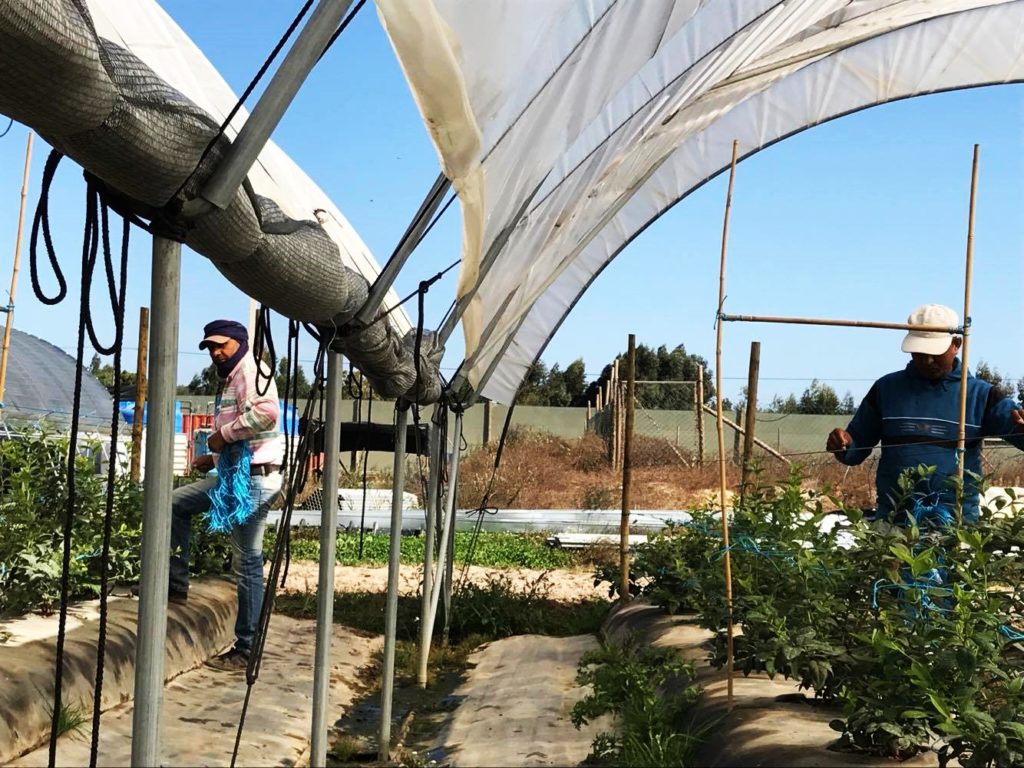
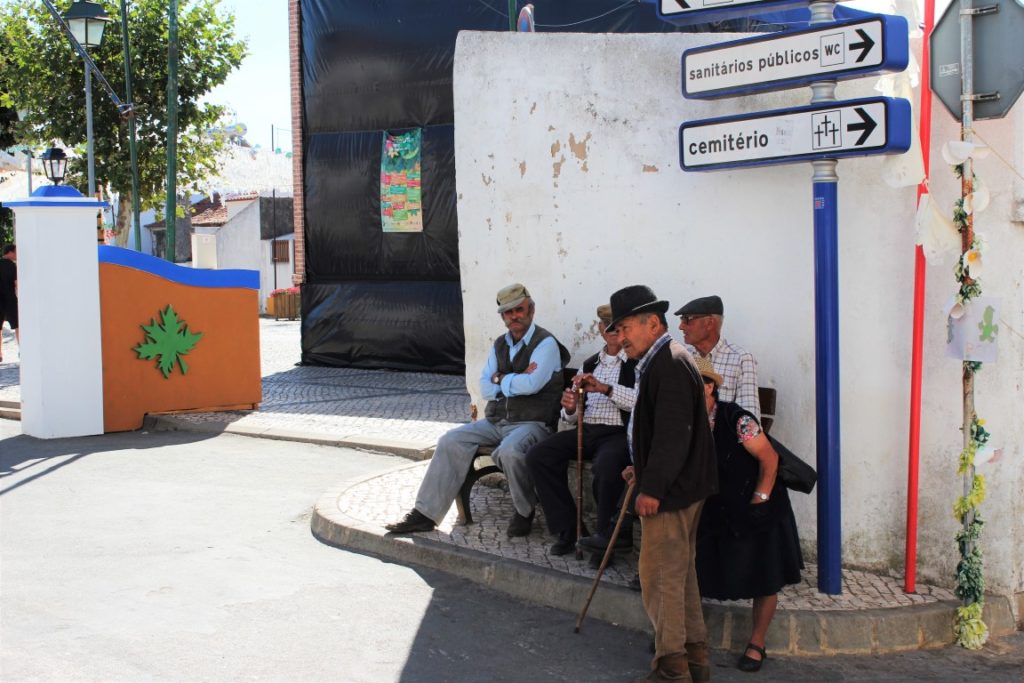


















Comments